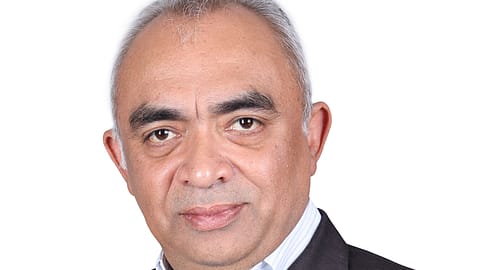InterGlobe Enterprises’ hospitality play
In 11 years, InterGlobe Enterprises (IGE), promoter of India’s largest airline IndiGo, and French hospitality major Accor have together built a ₹700 crore hospitality business in the country.

Over the last eleven years, New Delhi-based InterGlobe Enterprises (IGE), promoter of India’s largest airline IndiGo, and French hospitality major Accor have together built a sizeable hospitality business in the country with 24 operational hotels. InterGlobe Hotels, which is a 60:40 venture between IGE and Accor, operates 17 mid-market Ibis hotels across India. While Triguna Hospitality Ventures, a tripartite India entity consisting of IGE, Accor and the Government of Singapore, operates four upscale Novotel hotels, two Ibis and a 270-room upscale Pullman hotel.
By the end of calendar 2019 these properties combined would generate revenues of about ₹700 crore.“From an IGE level the hospitality business is big,” said JB Singh, president and CEO, InterGlobe Hotels in a freewheeling interview with Fortune India. Jean-Michel Casse, COO, India and South Asia, AccorHotels, who was also present, spoke about the company’s growth plans for India and why he believes Oyo Rooms isn’t competition. Edited excerpts:
Why the need for two separate hospitality ventures?
Singh: We [IGE] are specialised in the travel space. Hospitality was always something that are owners Kapil and Rahul Bhatia were keen on. And we were clear that we wanted to be in the economy and mid-market space. We found the right partner in Accor who understood the space very well. Our first Ibis property in Gurugram opened in 2008. To date, InterGlobe Hotels has invested in excess of ₹2,000 crore, with an additional investment of ₹700 crore to develop six more Ibis hotels that would roll out by 2022.
Casse: In 2010, we setup Triguna Hospitality Ventures—with IGE, Accor and Government of Singapore—each owning a one-third stake. We realised that with our partners [IGE] we may have opportunities to develop bigger hotels with other Accor brands.
Singh: Triguna has also invested ₹2,000 crore across its seven properties.
Casse: Today, in India, we are managing 51 Accor properties. Besides our joint venture properties with IGE, all the others are standalone hotels with different owners–an asset light model approach. At present, we have 24 hotels that are under various stages of design and development.
With respect to your mid-market brand Ibis, has there been any impact due to the surge in new-age hospitality players such as OYO Rooms?
Singh: I always find this question interesting. Oyo is an aggregator, they are aggregating rooms. We are in to the actual building and supply of rooms. We would be one of fastest institutionalised hospitality players in India who is making significant investments and building a sustainable business in this space. In the last couple of years our CAGR in putting [room] inventory out has been 27%; our revenue on average has been growing at 26% to 27%.
Casse: The the kind of service we provide, the kind of entertainment we provide, there is not a single aggregator that can offer this kind of service. In India, take any platform, such as Oyo or Treebo, and look at their rate pattern, they all aim to charge above ₹2,500 to ₹3,000 per night. But at the end of the day 90% of their business is below that. At Ibis, you will not get a room below ₹3,000 to ₹3,500 per night. The only impact that they have had on us, is us being able to increase our rates.
As a market, how significant is India for Accor?
(INR CR)
Casse: In the Asia Pacific region we have about 1,000 hotels of which 51 are in India. While it’s not significant today, we see significant opportunities here in India as the country’s middle-class grows and new consumers emerge.
Singh: Accor is the only international brand that is investing in India, others are just operating. In 11 years, we [InterGlobe Hotels & Triguna Hospitality Ventures] have built 24 hotels; I don’t think anyone has made such a significant commitment into the market. InterGlobe Hotels would end CY19 with revenues of ₹350 crore; Triguna would also end the year with similar revenue figures.